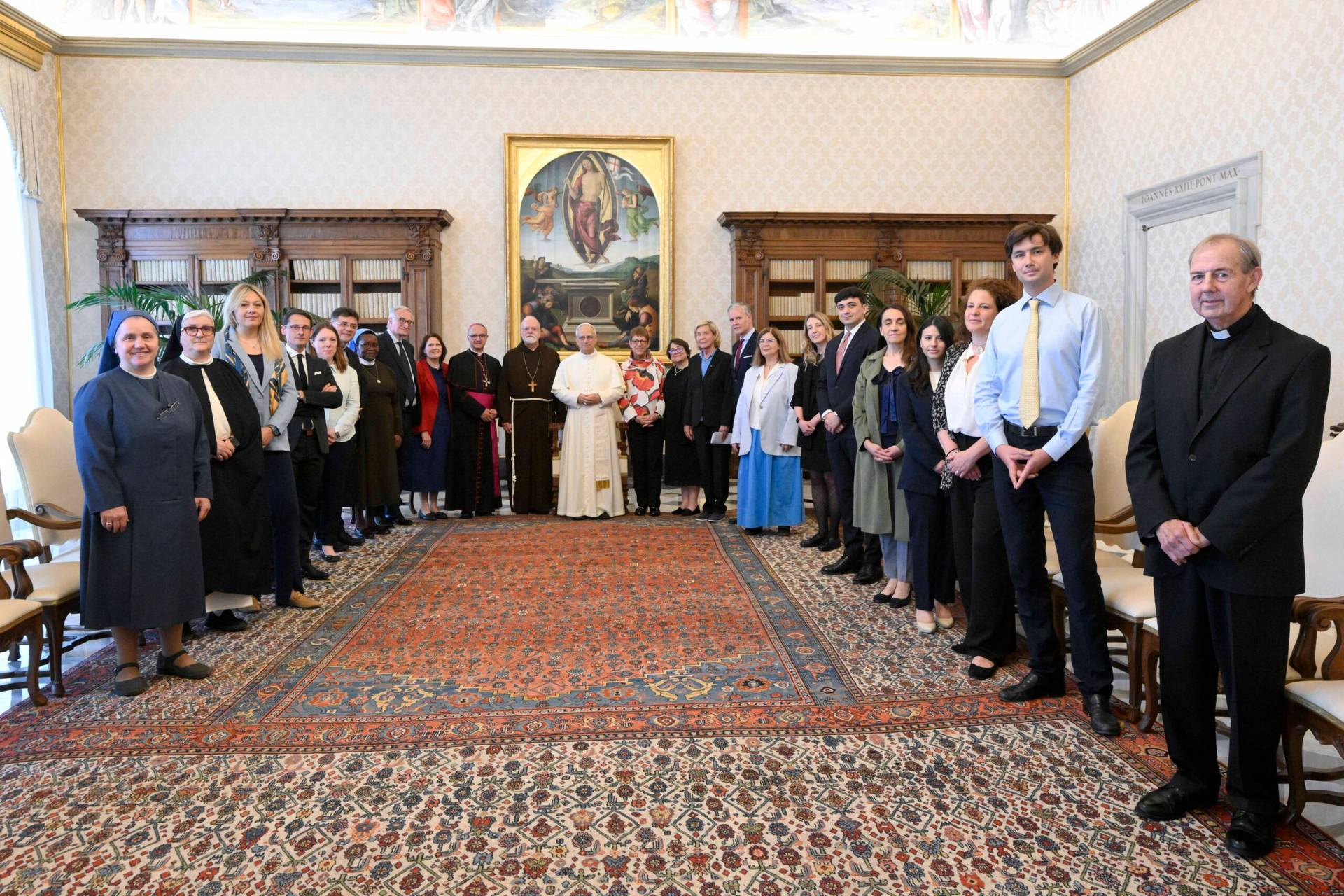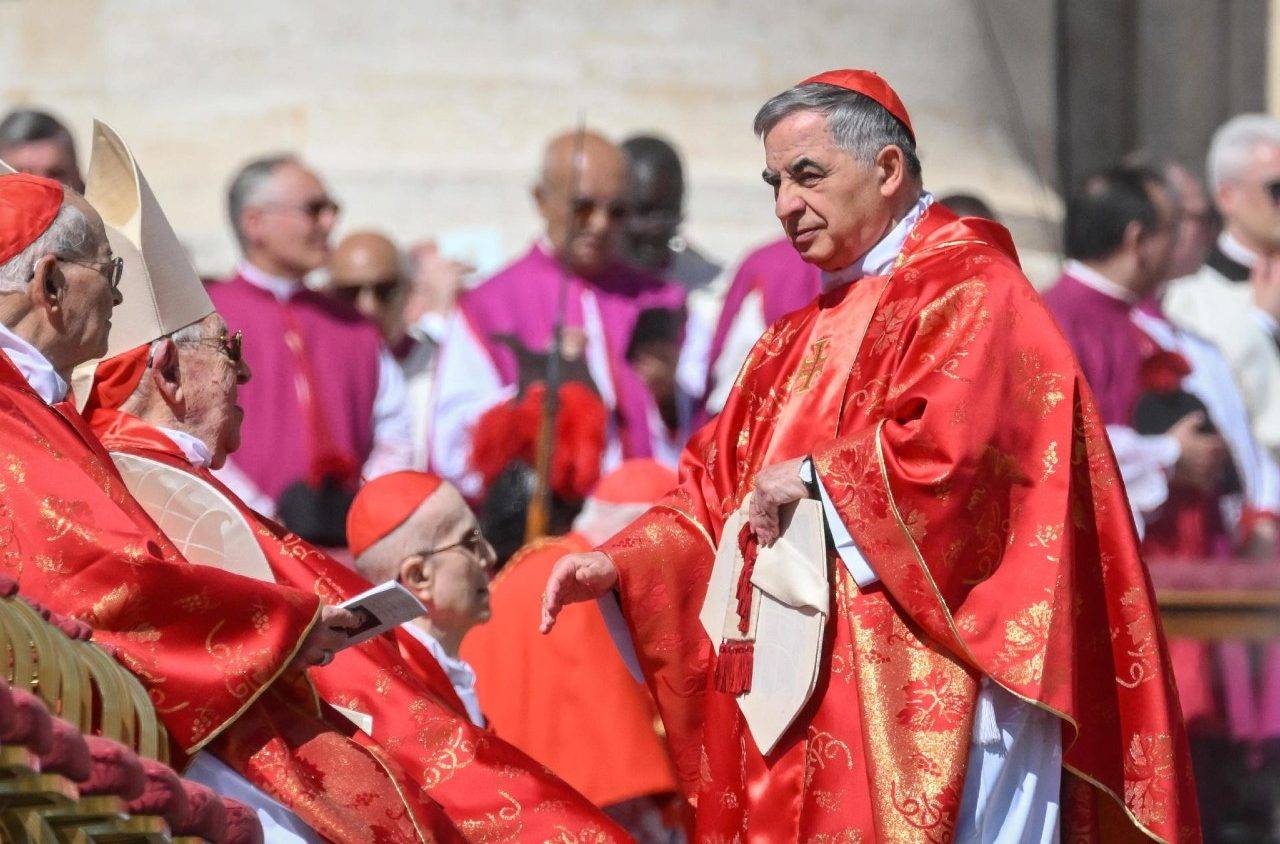ROME – Let’s be clear. If anyone thinks a Vatican criminal trial is like an episode of “Law and Order,” with dramatic courtroom confessions, barbed verbal crossfires between attorneys, and surprise bombshell revelations, here’s a news flash: This is a different animal altogether.
For the most part, the Vatican follows rules established by a 19th century Italian version of criminal procedure, which does not envision trial by jury but instead a more active role for judges. They aren’t just referees, like in American trials, but they conduct their own examinations of witnesses. Since the main point of a trial is building an evidentiary record to serve as the basis for a decision, the presiding judge spends a painstaking amount of time repeating back witnesses’ answers to questions, trying to get consensus on pretty much every word.
In other words, it’s about as scintillating most of the time as watching paint dry.
On what amounted to the first full day of the Vatican’s latest major criminal trial, after a preliminary motions hearing in July and an opening day Sept. 7 that was quickly suspended due to the emergence of new evidence, Tuesday’s hearing was consumed by the testimony of the defendant ostensibly at the heart of the case: Giuseppe Profiti, a lay Italian financier and academic who served as both the president of the papally-sponsored Bambino Gesù pediatric hospital and the president of a foundation directing the hospital from 2008 to 2017.
Profiti, who spent almost six hours on the stand Tuesday, stands charged with misappropriation of funds along with another Italian layman, Massimo Spina, who served as treasurer of the foundation during Profiti’s tenure. The indictment pivots on the claim that when Profiti and Spina decided to use roughly $500,000 of the foundation’s fund to help renovate a Vatican apartment belonging to Italian Cardinal Tarcisio Bertone, the former Secretary of State under Pope emeritus Benedict XVI, they acted illegally because such expenses aren’t authorized by the foundation’s statutes.
Moreover, the charge also states that the expenses were designed to benefit another Italian layman, Gianantonio Bandera, whose now-bankrupt construction company not only was paid by the foundation for work it never completed, but also apparently was paid by the Government of the Vatican City State separately for more or less the same work.
(In one of the many ironies surrounding this trial, not only is Bandera not among the defendants, he’s appearing as a witness for the prosecution.)
One’s obliged to add the qualifier “ostensibly” to the statement that Profiti is the main event here because there are two other figures, both of whom loom much larger in Catholic affairs, and whose reputations are also on the line in one way or another: Bertone, and Pope Francis himself.
For Bertone, now 82, it’s difficult for many observers to take at face value his claims that he had no role in the affair since he personally installed Profiti at the Bambino Gesù after Profiti led a Church-owned hospital in Genoa when Bertone was the city’s archbishop, and Bandera is also a longtime associate who likewise hails from Genoa. At a common-sense level, the question hanging over Bertone is how, if it was a crime to disburse money from the hospital’s foundation on his apartment, it wasn’t a crime for Bertone to benefit from it.
Not only is Bertone not charged in the case, he’s not even listed among the witnesses.
In terms of Francis, many observers see this trial as a referendum on his overall financial reform effort. Francis has promised transparency and accountability, but if key witnesses aren’t called and the perception is that laymen are expendable but cardinals, especially former Secretaries of State, aren’t, then some may be tempted to conclude that reform is dead.
As for Tuesday’s hearing, if you were scoring Profiti’s performance in the witness chair like a boxing round, you’d probably have to give it 10-9 to the prosecution side. Profiti came off as relaxed and cooperative, but the tone of questioning from the three-judge panel, especially Presiding Judge Paolo Papanti-Pelletier, seemed to indicate a degree of skepticism about Profiti’s repeated insistence that the expenses were entirely normal and above board.
From the beginning, Profiti’s defense has been simple: Part of the scope of the foundation is to raise money for the hospital; having a facility inside the Vatican, in the apartment of a cardinal-patron, where events and receptions could be held for potential donors would have been a boon to those efforts (at one stage, he said what the foundation would make from using the apartment would be “well beyond” what it spent); hence, not only did I do nothing wrong, I’d do it all over again.
Profiti had the chance to speak for himself Tuesday morning, and largely repeated that defense line. He said his decisions on expenses were driven by two considerations, “sustainability” and “remunerability,” meaning return on investment, and by both, he said, the outlay for the apartment made all the sense in the world.
He also claimed that during the same period the foundation was helping to cover the remodeling costs, contributions to the foundation went up. Further, he cited an article from the foundation’s statutes that gave him the authority to “undertake any other activity with respect to institutional [activity], if it’s connected and not prevailing.”
Finally, Profiti also seemed to try to insulate his co-defendant Spina from responsibility, insisting that the idea for the expenses on Bertone’s apartment were “mine, exclusively mine.”
“I told the cardinal, who gave me a verbal authorization, and then I proposed and obtained a formal authorization,” he said.
Papanti-Pelletier challenged Profiti at various points, asking how he connects the increase in donations to the money spent on Bertone’s apartment, and also challenged his claim the expenses were routine: If so, Papanti-Pelletier asked, why didn’t you take them before the foundation’s board rather than doing it by yourself? Papanti-Pelletier also repeatedly stressed that the amount of money involved wasn’t “irrelevant,” and wanted to know if the idea came from Profiti himself.
At one stage, Profit insisted there was nothing unusual about him authorizing expenses of relatively similar amounts without consulting his board, noting that he did the same thing, for instance, for an every-two-year Christmas concert sponsored by the foundation that cost about $300,000.
On that point, Judge Carlo Bonzano asked if there isn’t an obvious difference between expenses for a regular event that occurs in full public view, and a remodeling project for a private apartment that’s unusual for the foundation.
Beyond the claim that he was acting well within the scope of his authority, two other elements of Profiti’s strategy seemed to come into view on Tuesday: Distancing himself from Bandera, and insisting that the primary responsibility for the affair lies with the Government of the Vatican City State, not the foundation he led.
“We had no role in the choice, authorization or realization” of the work by Bandera’s companies, Profiti stressed at one stage, insisting it was the Governatorato (meaning the Government of the Vatican City State) that did so. He also downplayed any contact between Bandera and himself, saying he only recommended him for the job because Bertone did so first.
Profiti claimed to the judges that the Governatorato was also the “only institution” to realize a profit from the affair, around $170,000, which was the difference between what it collected for the project and what it eventually spent.
Profiti stressed that the very last payment from the Bambino Gesù foundation actually was made before the very first from the Governatorato, and claimed that all of his actions were on the basis of a contract approved by the Governatorato.
It remains to be seen how the three-judge panel will evaluate that testimony. In the meantime, Tuesday’s hearing began with skirmishing over two other possible witnesses that defense attorneys want to call, with the judges postponing a decision until later in the process.
Those potential witnesses are Mariella Enoc, the current president of the Bambino Gesù, who has deposited written testimony to the court and said she has nothing to add; and Tommaso Di Ruzza, director of the Vatican’s Financial Information Authority, its main anti-money laundering and financial fraud unity.
In response to a request to call Di Ruzza as a witness, the president of the Financial Information Authority, Swiss lawyer and anti-money laundering expert René Brülhart, sent a letter to the tribunal saying Di Ruzza shouldn’t be asked to testify for “motives of intelligence.” (Essentially, he meant that since his office’s work involves confidential exchanges of information among financial intelligence units of different countries, including the United States, it would compromise their work to discuss it in open court.)
Both attorneys for Profiti and Spina argued on Tuesday that Enoc and Spina should appear, with Profiti’s lead attorney Antonello Blasi in particular presenting a series of purported deficiencies and ambiguities in her written testimony. In response, Papanti-Pelletier said the judges would see what emerges “in the course of the discussion” and then make a decision.
In the end, nothing was resolved on the first full day of testimony in the trial, and no one expected it would be. However, it would seem Profiti has his work cut out for him to persuade the court that the outlay for Bertone’s apartment was simply a legitimate exercise in business as usual.
As for Francis and the overall financial reform, those topics never even came up in court on Tuesday – and, again, no one expected they would. That verdict, in the end, won’t be rendered by these three judges, although whatever they do or don’t do inevitably will help to shape it.
The trial resumes on Thursday, with the plan being to hear from both Spina and Bandera.















